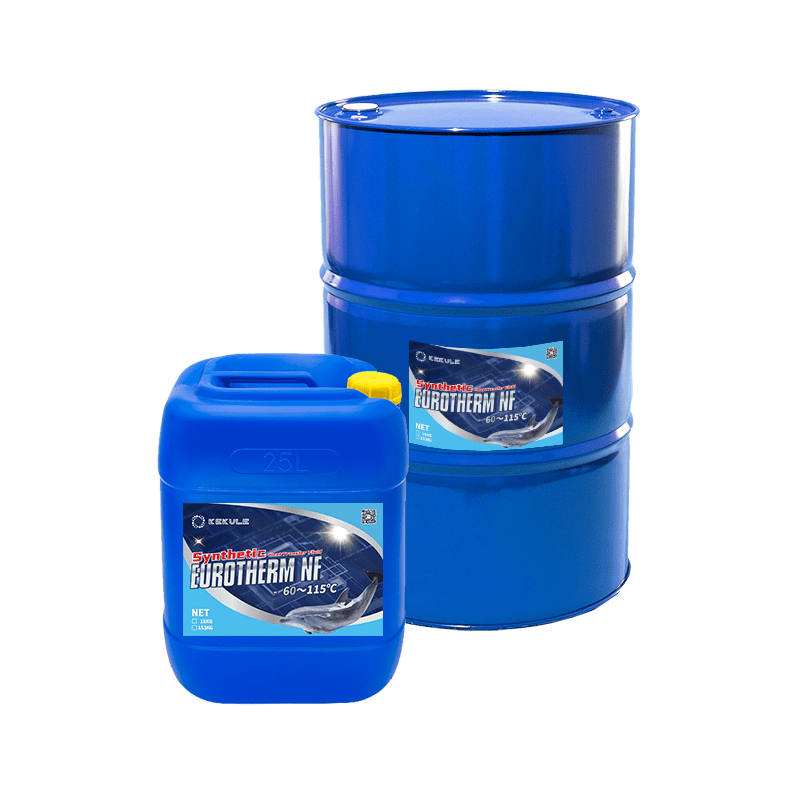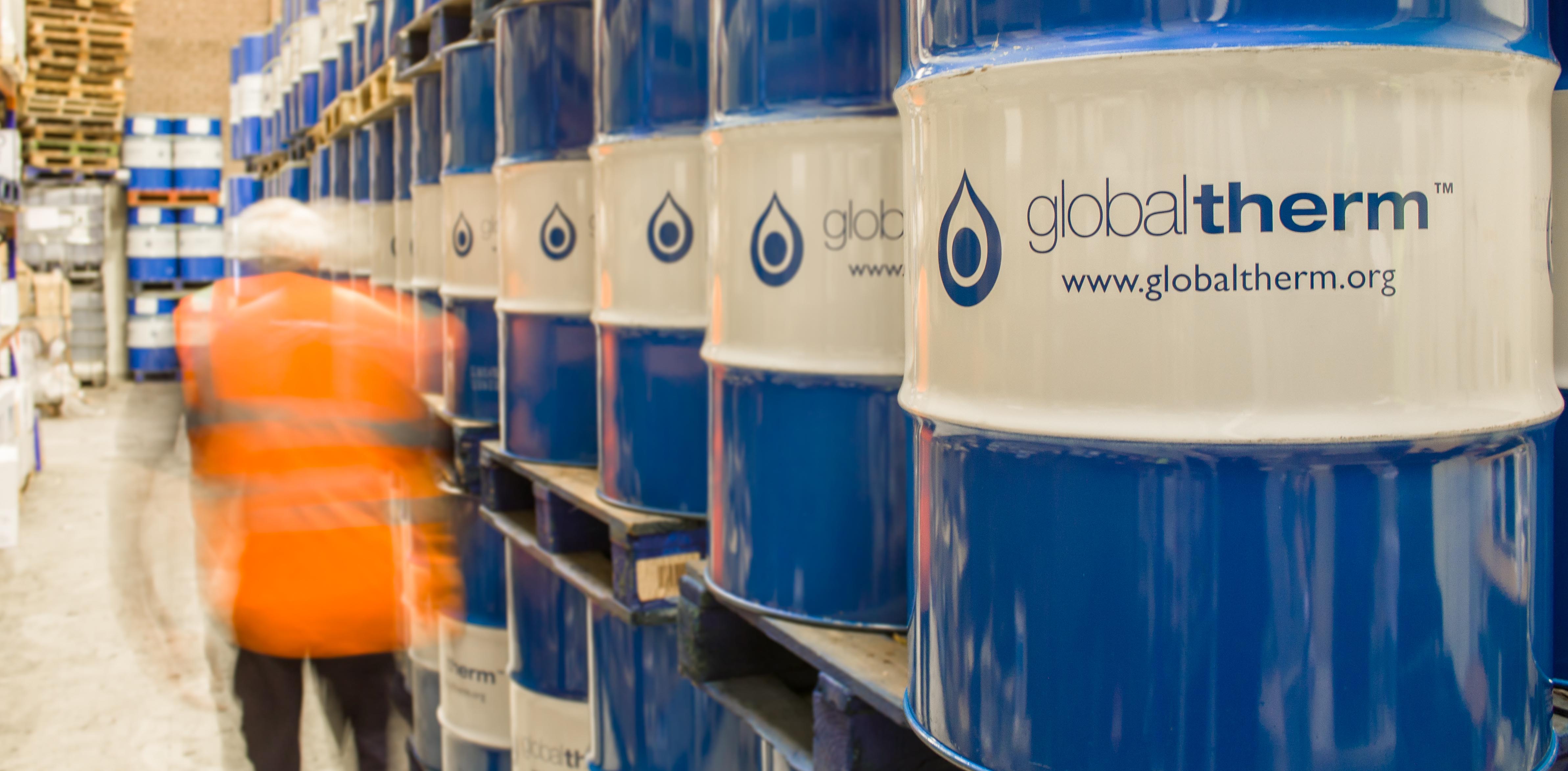Why Selecting the Right Heat Transfer Fluid Is Crucial for Optimal System Efficiency
Selecting an appropriate warm transfer liquid is a pivotal decision that can significantly impact system performance and operational prices. The appropriate liquid not only boosts thermal performance however additionally makes certain durability and reliability of tools, minimizing the threat of expensive downtimes. Secret properties such as thermal conductivity, viscosity, and thermal security should be very carefully reviewed to maximize power consumption and avoid potential failings. As the ramifications of this choice expand much past prompt performance, comprehending the subtleties of fluid selection ends up being essential for anyone looking to accomplish ideal system effectiveness. What variables should be prioritized in this important decision-making procedure?
Significance of Heat Transfer Fluids
What duty do warm transfer liquids play in commercial processes? Heat transfer liquids are necessary for the effective transfer of thermal energy within various commercial systems.
The option of warm transfer fluid can significantly impact energy safety, efficiency, and tools long life. Fluids should be capable of withstanding high temperature levels and pressures without degrading, along with exhibit marginal volatility and low toxicity. Their efficiency straight affects not just the efficiency of the system yet also its functional prices.
Furthermore, heat transfer fluids play an important duty in keeping process control, making sure that temperature level fluctuations are reduced. This is specifically essential in delicate applications such as petrochemicals and drugs, where precise temperature level management is important. On the whole, the value of picking the ideal warmth transfer fluid can not be overemphasized, as it is integral to enhancing industrial processes and improving total system performance.
Trick Residence to Take Into Consideration
When selecting a warmth transfer fluid, which crucial buildings should be focused on to make certain optimum performance? Thermal conductivity is important; a fluid with high thermal conductivity will effectively transfer heat, decreasing energy loss. Additionally, the details warmth capacity of the fluid is crucial, as it establishes just how much power the fluid can store and launch, influencing general system responsiveness.
Thickness is an additional considerable residential property to think about, as it affects the liquid's circulation qualities; reduced thickness liquids are normally preferred for easier blood circulation and decreased pumping energy. The liquid's temperature level array is similarly vital; it has to execute properly within the functional temperature levels of the system without degrading or vaporizing.
Chemical security is vital to avoid degradation gradually, which can bring about system inadequacies and potential failings - silicone oil. Compatibility with system products need to not be neglected to prevent deterioration or damage to components. Take into consideration the ecological influence and security profile of the liquid, as laws and sustainability objectives increasingly influence fluid choice. By focusing on these key buildings, one can choose a heat transfer liquid that enhances system durability and reliability.

Influence On System Efficiency
The option of warm transfer liquid straight affects system performance, influencing both power intake and operational efficiency. A fluid's thermal conductivity, viscosity, and warmth ability play crucial functions in just how efficiently it transfers warmth within a system. Optimum fluid buildings ensure that warm is taken in and dispersed effectively, minimizing energy Visit Website losses and improving the overall efficiency of the system.

In addition, the compatibility of the liquid with system materials can substantially influence efficiency. A liquid that causes rust or degradation can cause leakages and system failures, further reducing effectiveness. In recap, the right heat transfer fluid not just makes best use of power effectiveness and reduces expenses however additionally boosts the reliability and durability of the system, making it a vital factor to consider for designers and decision-makers in thermal management applications.
Usual Kinds Of Heat Transfer Fluids
A range of warmth transfer liquids are typically employed in thermal monitoring systems, each with distinct properties suited to details applications. Water is just one of the most commonly used warmth transfer liquids as a result of its high particular warmth capability, low cost, and accessibility. Nevertheless, its freezing point restricts its use in low-temperature applications.
Thermal oils, commonly originated from petroleum, are an additional preferred choice, specifically in high-temperature systems. These fluids can run at elevated temperatures without helpful resources vaporizing, making them ideal for commercial applications. They might have constraints concerning thermal stability.
Refrigerants, utilized primarily in cooling down systems, have unique thermodynamic residential properties that permit reliable heat transfer at low temperature levels. Their choice is essential to make sure performance and conformity with environmental guidelines.

In addition, phase change products (PCMs) are gaining traction for their capability to soak up and launch significant amounts of heat during stage transitions, using an unique remedy for thermal power storage space. Each fluid's certain attributes should be reviewed for optimal performance.
Ideal Practices for Option
Selecting the proper warm transfer liquid entails careful factor to consider of several essential aspects that straighten with the certain demands of the application. Second, take into consideration the liquid's thermal conductivity, which affects warmth transfer prices; higher thermal conductivity typically leads to improved performance.
Additionally, review the fluid's viscosity, as it affects pumping power and overall system efficiency. Reduced viscosity liquids commonly decrease energy usage during flow. Compatibility with system materials is click over here an additional critical facet; make sure that the liquid does not create rust or degradation of parts and pipes.
Next, think about the liquid's security and durability, particularly in high-temperature applications. A stable fluid minimizes maintenance and replacement prices. Last but not least, environmental and safety policies need to guide your selection process, stressing eco friendly and non-toxic choices when possible.
Conclusion
In verdict, picking the ideal heat transfer liquid is vital for attaining optimum system performance. The ideal fluid improves thermal conductivity, decreases energy losses, and advertises equipment longevity, eventually causing better system reliability and efficiency. Comprehending the key properties and effects of various fluids on system effectiveness is important for informed decision-making. Complying with finest practices in fluid choice can result in substantial long-term price financial savings and operational efficiency.
Warm transfer fluids are vital for the reliable transfer of thermal power within various commercial systems. Furthermore, the details warm capacity of the liquid is crucial, as it establishes just how much power the fluid can launch and save, influencing overall system responsiveness.
Consider the ecological effect and safety account of the liquid, as laws and sustainability goals significantly influence fluid selection - thermal oil. A liquid's thermal conductivity, thickness, and warm capability play critical duties in how successfully it transfers heat within a system. Water is one of the most commonly used warm transfer fluids due to its high specific warm ability, reduced cost, and schedule